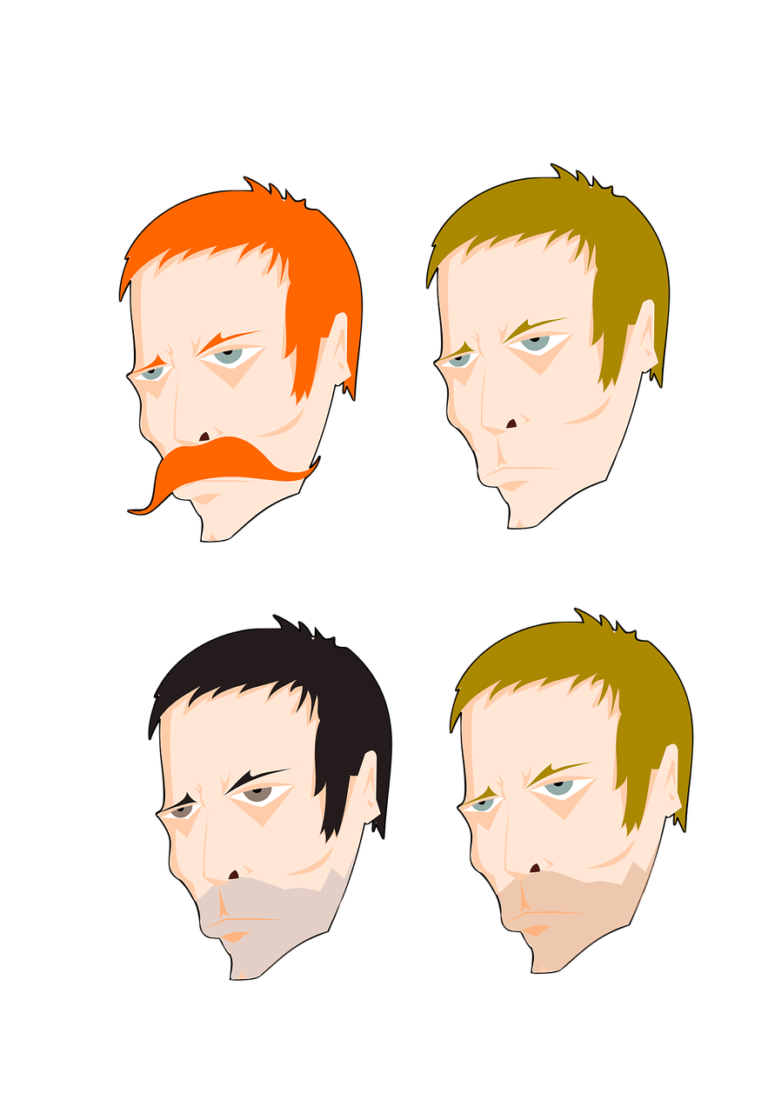How Do You Fix Insomnia?

Insomnia can feel like a relentless battle against your own mind and body, but there are actionable steps you can take to reclaim your nights. Establishing a consistent sleep schedule, creating a relaxing bedtime ritual, and making your sleep environment conducive to rest are essential starting points. At Vector Sleep Diagnostic Center, our team of specialists, led by Dr. Dmitriy Kolesnik, offers a deeper dive into personalized solutions. With over two decades of expertise in Sleep Medicine, Dr. Kolesnik and his compassionate staff utilize cutting-edge technology and evidence-based practices to identify and treat the root causes of your insomnia. From detailed evaluations to continuous care, Vector Sleep Diagnostic Center is committed to guiding you towards restful nights and a renewed quality of life. Have you been tossing and turning at night, unable to get the much-needed rest your body craves? Insomnia can be a frustrating and debilitating condition that affects countless people around the world. You might have tried counting sheep, avoiding caffeine, or even reading a boring book, but nothing seems to work. So, how do you fix insomnia?
Understanding Insomnia
Before diving into solutions, it’s essential to understand what insomnia is and what causes it. Insomnia is a common sleep disorder that makes it difficult for you to fall asleep, stay asleep, or get quality sleep. It can be categorized into two main types:
- Acute Insomnia: Short-term and often the result of stress or a traumatic event.
- Chronic Insomnia: Lasts for a month or longer and can be caused by various factors such as medical conditions, mental health issues, or lifestyle habits.
Common Symptoms of Insomnia
- Difficulty falling asleep
- Waking up frequently during the night
- Trouble going back to sleep if woken up
- Waking up too early in the morning
- Daytime sleepiness or irritability
- Difficulty concentrating during the day
Root Causes of Insomnia
Identifying the root cause of your insomnia is critical to finding a lasting solution. Here are some common culprits:
Stress and Anxiety
Stressful events such as work pressure, relationship issues, or a significant life change can keep your mind racing at night. Persistent anxiety amplifies this issue, making it hard to relax before bedtime.
Poor Sleep Habits
Your sleep environment and personal habits play a significant role in your ability to sleep. Frequent exposure to screens, irregular bedtime schedules, and uncomfortable sleep settings can hinder your sleep quality.
Medical Conditions
Conditions like chronic pain, asthma, or gastroesophageal reflux disease (GERD) can make it difficult to get comfortable, disrupting your sleep. Additionally, mental health disorders such as depression and PTSD often lead to insomnia.
Medications and Substance Use
Certain medications—like those for asthma, high blood pressure, or depression—can have side effects that disrupt your sleep. Likewise, substances like caffeine, nicotine, and alcohol can interfere with your sleep patterns.
Hormonal Changes
Changes in hormones, especially for women, can cause sleep disturbances. Menopause, menstrual cycles, and pregnancy are common triggers.
Effective Strategies to Fix Insomnia
Now, let’s explore practical strategies you can implement to improve your sleep quality.
Establish a Consistent Sleep Schedule
Going to bed and waking up at the same time every day—even on weekends—helps regulate your body’s internal clock. This consistency makes it easier for you to fall asleep and wake up refreshed.
Create a Restful Environment
Make your bedroom a sanctuary for sleep:
- Comfortable Bed: Invest in a quality mattress and pillows.
- Cool Temperature: Keep your room cool (around 60-67°F or 15-19°C).
- Eliminate Noise and Light: Use earplugs, blackout curtains, or a white noise machine if needed.
Limit Exposure to Screens
The blue light emitted by phones, tablets, and computers can interfere with the production of melatonin, a hormone that regulates sleep. Try to avoid screens at least an hour before bedtime.
Mind Your Diet
What you eat and drink influences your sleep. Here are some tips:
- Avoid caffeine and nicotine in the evening.
- Limit alcohol consumption.
- Don’t go to bed hungry or overly full. Opt for a light snack if you’re peckish before bedtime.
Exercise Regularly
Physical activity during the day can help you fall asleep faster and enjoy deeper sleep. However, avoid vigorous exercise close to bedtime as it may have the opposite effect.
Manage Stress and Anxiety
Incorporate stress-reducing activities into your daily routine. Meditation, yoga, deep breathing exercises, and journaling can help calm your mind and prepare you for sleep.
Seek Professional Help
If lifestyle changes aren’t enough, it might be time to consult a professional. Cognitive Behavioral Therapy for Insomnia (CBT-I) has been shown to be highly effective for treating chronic insomnia.
About Vector Sleep Diagnostic Center
When dealing with persistent sleep issues, it’s essential to seek professional guidance. That’s where Vector Sleep Diagnostic Center comes in.
Where Expertise and Compassion Converge
Vector Sleep Diagnostic Center is led by Dr. Dmitriy Kolesnik, a veteran sleep medicine specialist with over two decades of experience. Dr. Kolesnik is board-certified by the American Board of Sleep Medicine, Psychiatry, and Neurology. He began his illustrious career at St. Petersburg Medical School in Russia and further honed his skills after relocating to New York in the early 1990s.
Academic and Clinical Excellence
Since 2004, Dr. Kolesnik has also been serving as a Clinical Instructor in Neurology at Weill Medical College of Cornell University. This academic role keeps him updated on the latest research and treatment options, ensuring that you benefit from cutting-edge care.
Comprehensive Care Under One Roof
Since becoming the Medical Director at Vector Sleep Diagnostic Center in 2009, Dr. Kolesnik has cultivated a team dedicated to diagnosing and treating a wide range of sleep disorders using the latest technology and evidence-based practices. Whether you’re dealing with sleep apnea, restless legs syndrome, or insomnia, Vector Sleep Diagnostic Center offers tailored solutions to meet your needs.
Services Offered
Sleep Consultation
Your journey toward better sleep starts with a comprehensive evaluation. This initial consultation involves a detailed discussion about your sleep history, lifestyle, and symptoms. Preliminary tests or questionnaires may be conducted to better understand your sleep patterns.
Sleep Studies
Vector Sleep Diagnostic Center offers various sleep studies to diagnose and manage sleep disorders effectively. Options include:
- Overnight Polysomnography: Monitors brain waves, oxygen levels, heart rate, and breathing patterns.
- Home Sleep Apnea Tests: Convenient options for diagnosing sleep apnea in the comfort of your home.
- Multiple Sleep Latency Tests: Measures how quickly you fall asleep in a quiet environment during the day.
- Maintenance of Wakefulness Tests: Assesses your ability to stay awake in quiet, non-stimulating situations.
- Specialized Pediatric Sleep Studies: Designed for diagnosing sleep issues in children.
Insomnia Solutions
One of the cornerstones of Vector’s services is its specialized insomnia solutions. These involve thorough evaluations to identify the root causes of your insomnia and develop targeted treatment plans to help you reclaim your nights.
Comprehensive Sleep Apnea Care
From CPAP titration to Durable Medical Equipment (DME) setup, Vector Sleep Diagnostic Center offers a wide range of services for effective sleep apnea treatment. Your treatment plan is tailored to meet your specific needs, ensuring you enjoy a better night’s rest.
Follow-Up and Continuous Care
Your relationship with Vector Sleep Diagnostic Center doesn’t end after your initial treatment. Continuous care and follow-up sessions ensure that your treatment remains effective and evolves as your needs change.
Empowering You with Knowledge
Vector believes that knowledge is power. Their sleep education program includes:
- Interactive Workshops: Learn strategies to improve sleep hygiene and manage sleep disorders.
- Educational Brochures: Easy-to-read guides breaking down complex sleep topics.
- Online Modules: Accessible educational content you can explore at your convenience.
- One-on-One Counseling: Individual sessions with sleep specialists addressing your specific issues.
Why Choose Vector Sleep Diagnostic Center?
When you choose Vector for consultation and education services, you’re placing your sleep health in the hands of board-certified specialists equipped with the latest knowledge and technologies.
Convenient Location
Located at 26, 62-60 99th St, Rego Park, NY 11374, Vector serves multiple boroughs in New York, making specialized sleep care accessible to you.
Contact Information
Ready to take the first step towards better sleep? Contact Vector Sleep Diagnostic Center today:
- Phone: (718) 830-2800
- Email: vectorsleep@gmail.com
Conclusion
Insomnia can be a complex and frustrating condition, but with the right strategies and professional support, you can achieve better sleep. Establishing consistent sleep habits, creating a restful environment, and managing stress are great starting points. However, if these methods aren’t enough, seeking professional help from experts like those at Vector Sleep Diagnostic Center can provide the comprehensive care you need to finally enjoy restful nights.
So, are you ready to reclaim your nights and improve your quality of life? Don’t wait—take action today and get the sleep you deserve.






